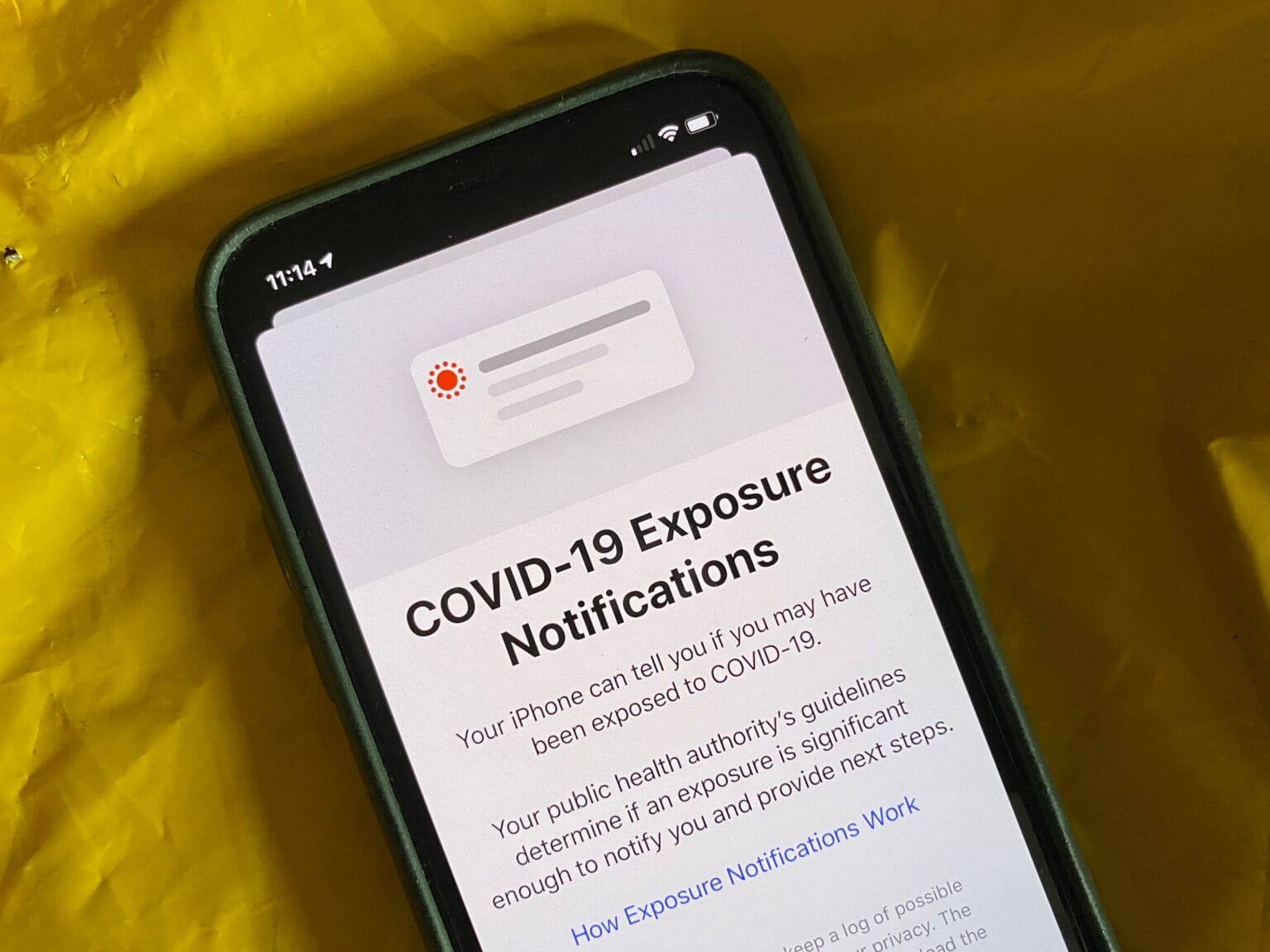More than two months after Virginia became the first state to use Apple and Google’s Exposure Notifications API, a total of 10 states now distribute their own contact-tracing apps to fight COVID-19.
The two most recent — New York and New Jersey — launched their apps last week.
Contact tracing is used by public health officials to fight infectious diseases like tuberculosis, measles and ebola. However, it is traditionally handled by workers tasked with identifying all the people who came into contact with a known infected patient. If widely adopted, contact-tracing apps could streamline the critical task of notifying individuals unknowingly exposed to the highly contagious virus that causes COVID-19.
While uptake may not have been quite as speedy as some would have liked, Apple and Google’s technology is finally gaining momentum. According to CNBC, 21% of the U.S. population — or around 70 million in total — currently have access to a COVID-19 app. States or districts that currently offer contact-tracing apps include:
- Alabama
- Delaware
- Nevada
- New Jersey
- New York
- North Carolina
- North Dakota
- Pennsylvania
- Virginia
- Wyoming
- Guam
Meanwhile, those that have either announced plans or are currently testing apps include:
- Colorado
- Connecticut
- Maryland
- Oregon
- Washington
- Washington, D.C.
- Arizona (testing)
- California (testing)
Open source COVID-19 apps
The cost of developing a COVID-19 contact-tracing app continues to drop. While Germany’s contact-tracing app cost 20 million euros to develop, New York spent just $700,000 on Covid Alert NY.
Part of the reason is that other countries are making their apps open source, according to CNBC:
American governments can take advantage of apps built in countries such as Ireland and Canada because the code for those apps is available online and free to use and has already been deployed to millions of people. Instead of building the apps from scratch, they merely have to customize an open-source app with specific local health information, graphics and languages, and don’t have to reinvent complicated code for measuring Bluetooth signals or write privacy policies and other legal notices from scratch.
Contact tracing for the win
Launching apps is, of course, just one part of the picture. People also need to download the apps in question. The New York app was reportedly downloaded 250,000 times by Friday afternoon. New Jersey’s app was downloaded more than 63,000 times Friday. What percentage of people need to use the app for it to be effective isn’t totally clear, but CNBC says “an installation rate as low as 15% could help suppress Covid-19 if governments are also using traditional contact tracing.”
The API uses Bluetooth Low Energy to anonymously track people’s interactions. Then it notifies users who have likely been exposed to infected individuals so they can take appropriate precautions, such as isolating themselves or getting tested.
Apple and Google do not build the apps themselves, but rather provide the tools for building them. Governments and health organizations can then use the framework to build their apps.
Does your area have a contact-tracing app? Let us know in the comments below.
Source: CNBC


